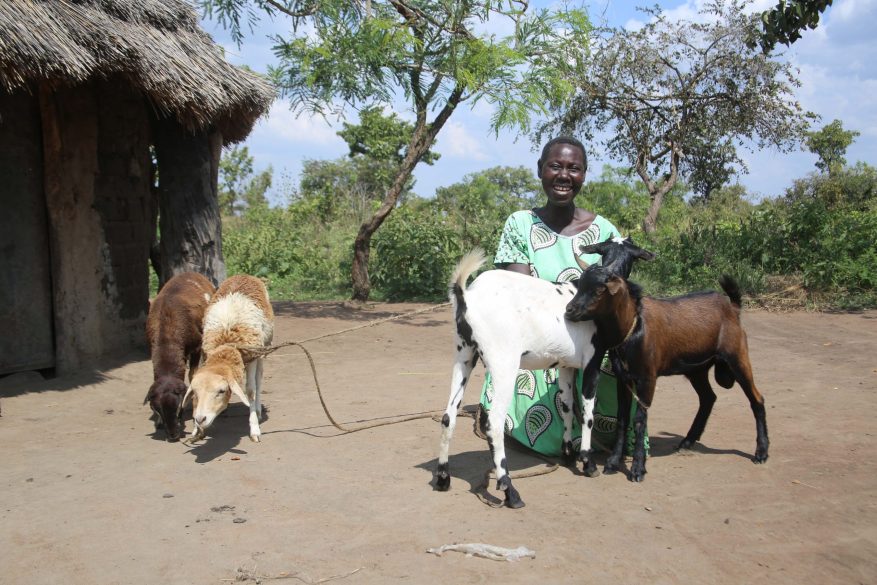Kapelebyong, Uganda – Rose Amulen struggled to find meaning in her life before she started working.
The ‘Teso Youth and Women’s Livelihoods Programme’ was created to improve the lives of people through training in climate-resilient agricultural practices, livestock support, advocacy, and village savings and loans associations, to enable the communities to increase their production, diversify their diets, and raise their income levels.
“I was just sitting at home, with no way to make money,” she said. “. When Self Help Africa came, I learned skills in making Mandazi (African Donuts). Now my plan is easy,: I want to own a big bakery”.
Kapelebyong, in Uganda’s Eastern region, is one of the country’s poorest districts. Between 2003 and 2008, insecurity in northern Uganda saw around 80,000 people forced to leave their homes and belongings behind in search of safety; many remained internally displaced for a decade. But conditions remained hard: extreme weather events, such as droughts, made it hard for many to grow enough nutritious food to feed their families and produce income. Communities in this area became even more vulnerable to climate shocks. As a result, poverty levels increased, leaving thousands of households to live on less than 1 dollar a day.
Mathew and Sharon are also seeing the benefits of having spent time upskilling their knowledge and skills in farming and gender empowerment, together as a couple. “Before, a woman could not have a hen or a goat, but when we were trained as a family, you should work with your husband and plan for your future, that is when I experienced a greater change within my family” says Sharon.
Rose, Mathew, and Sharon are among 1,000 participants of the ‘Teso Youth and Women’s Livelihood Programme’, whose lives completely changed after gaining specific skills and knowledge to grow their business and increase their income.
Self Help Africa, with funding from UK Aid, is supporting women, young people, and people with disabilities in Kapelebyong county, by offering:
- Skills and knowledge training for women, young people, and people with disabilities in activities, including craft making and baking.
- Supporting village loans and savings associations.
- Providing drought-tolerant groundnut, green gram seeds, and cassava cuttings, as well as training in commercial agriculture, boosting women and young people’s income.
- Farmers and community members were given fast maturing poultry and sheep to rear.
- Advocacy – the project’s advocacy committees have been instrumental in promoting sanitation and hygiene, holding leaders accountable, reducing gender-based violence and early marriages.
Self Help Africa delivered training to 19 youth groups, 19 women’s groups and two groups of people living with disabilities (with crossover between groups). An additional 5,000 people of all ages were targeted.
Through this three-year project, household income increased, 850 households increased their production of crops and livestock, 750 households improved their dietary lives, and an overall increase in decision-making power for women and young people was observed.

